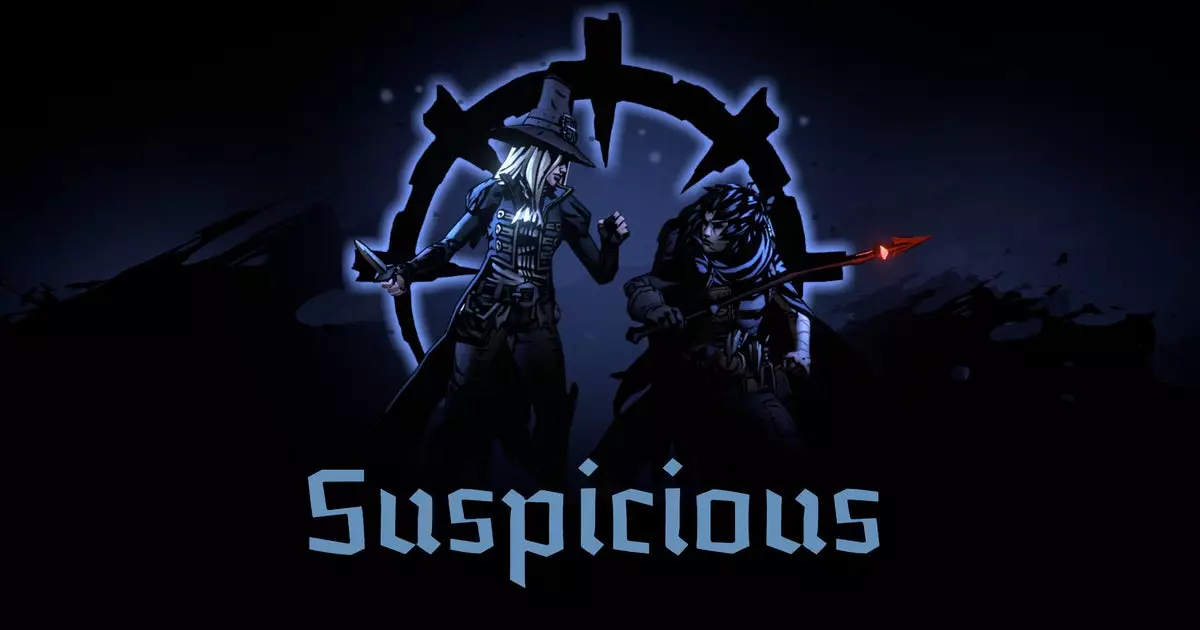The gaming industry is ever-evolving, characterized by rapid shifts in developer dynamics, acquisitions, and a ceaseless strive for innovation in gameplay. A recent high-profile acquisition has sent shockwaves through this community: Behaviour Interactive, the developer acclaimed for the popular multiplayer survival horror game Dead by Daylight (DBD), has set its sights on Red Hook Studios, the creators of the critically acclaimed Darkest Dungeon. This strategic maneuver raises a plethora of questions regarding the implications of such partnerships in an industry often fraught with uncertainty.
At first glance, Behaviour’s acquisition of Red Hook may appear as a match made in horror heaven, but the underlying nuances paint a more convoluted picture. In the preceding years, Behaviour has undergone a series of controversial actions—including layoffs, project cancellations, and the closure of the studio Midwinter Entertainment—raising skepticism about their long-term vision. Critics of this acquisition express genuine concern, noting that Red Hook’s independence may be merely a façade within this corporate structure. After all, Behaviour has made strides to build a repertoire of horror titles, and one cannot help but wonder how Red Hook’s identity will fit into this grander scheme.
The phrase “fully independent studio” has become a buzzword, often wielding varied interpretations depending on the context. While Behaviour’s announcement emphasizes support and autonomy for Red Hook, one must question the practical implications of this independence in an industry where financial influence inevitably shapes creative control. Will Red Hook maintain their unique voice and vision unhindered, or will they become just another cog in Behaviour’s growing wheel?
Behaviour Interactive’s decision to acquire a studio with such a distinct reputation raises eyebrows primarily due to the obvious disparity in scale and focus between the two. Behaviour’s aspirations to become synonymous with horror are commendable, yet they risk encroaching upon the very creative essence that makes Red Hook’s Darkest Dungeon a beloved title among fans.
In a statement endorsing this partnership, Behaviour CEO Rémi Racine framed the acquisition as a means to bolster their horror-centric strategy. This suggests that while they intend to nurture Red Hook, there’s an underlying commercial objective guiding this union. It’s hard to ignore the ominous implications—what if Behaviour decides that commercial viability supersedes the creative ambitions of the teams involved?
Red Hook’s co-founder Chris Bourassa has expressed an optimistic outlook regarding their newfound affiliation with Behaviour, calling them “kindred spirits.” This camaraderie is certainly beneficial in terms of shared vision, yet one cannot overlook the potential pitfalls. A support system is invaluable; however, the nature of that support remains ambiguous. If Behaviour is primarily focused on providing funding, what leeway does Red Hook retain in terms of artistic direction?
Moreover, a juxtaposition lingers: while Behaviour conveys a sense of benevolence, there exists an inherent tension in the balance of creativity versus financial constraints. Red Hook is striving to transform Darkest Dungeon into a flagship property of the dark fantasy genre, and any sudden shift in direction dictated by Behaviour could undermine years of painstaking development and artistic integrity.
As Red Hook delves into ambitious expansion efforts for Darkest Dungeon 2—including its transformation into a turn-based board game—the stakes are higher than ever. The company must navigate the complexities of their new situation while retaining the creative pulse that earned them acclaim. The collaborative nature of the relationship could yield some innovative outcomes, yet this precarious balance of power must remain in check.
Ultimately, the acquisition of Red Hook by Behaviour Interactive stands at a crossroads, where the blending of support and independence could redefine the horror gaming landscape. Will Behaviour’s financial backing empower Red Hook to realize their vision, or will the shadows of corporate control envelope their creative flame? As fans and industry observers, we may look forward to an intriguing evolution—but with cautious optimism. The horror world eagerly awaits to see whether this partnership illuminates new paths or leads to darker corridors of corporate reorganization.


Leave a Reply